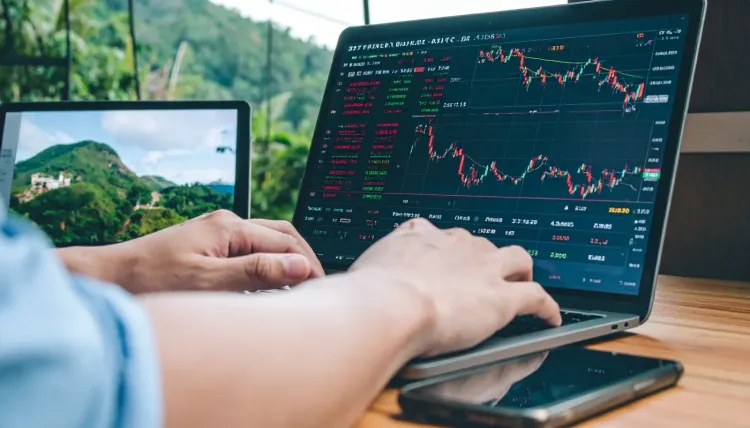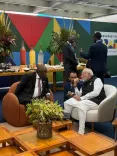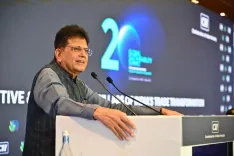Will US Tariffs Impact the Indian Equity Market?

Synopsis
Key Takeaways
- Indian equity markets show resilience despite global challenges.
- US tariffs are not expected to derail market performance.
- Domestic investor support is at an all-time high.
- Record inflows in domestic mutual funds indicate strong market backing.
- India's GDP continues to grow robustly, maintaining its status as a fast-growing economy.
New Delhi, Sep 2 (NationPress) The resilience of Indian equity markets is expected to continue despite global hurdles, buoyed by strong domestic investor support and the minimal impact of US tariffs, according to a recent report released on Tuesday.
The analysis by HSBC Global Investment Research adopts a 'neutral' outlook for India, highlighting that five out of nine identified risk factors for the Indian markets are on an improving trajectory.
"Tariffs are unlikely to derail the market, as the direct effect on the earnings of listed firms is expected to be limited," stated the research firm. Less than 4 percent of companies in the BSE 500 index rely on exports to the US, and the pharmaceutical sector remains exempt from tariffs, thus lessening earnings risks.
Consumption outlooks are brightening, aided by government tax incentives and declining inflation, with wage growth anticipated to foster a more sustained economic revival.
The prevailing monetary policy is also more accommodating, which should relieve pressure on banks—the most significant component of the listed universe.
"Despite noting improvements in several factors influencing equities, we believe the near-term upside potential remains restricted," the report added.
Projected earnings growth is expected to slow to 8–9 percent by 2025, while the consensus forecast for the calendar year 2025 stands at 11 percent, according to the brokerage.
Domestic mutual funds saw record inflows through systematic investment plans in July. "This represents the strongest supportive element for Indian markets and can serve as a robust force even when foreign investments are subdued," the brokerage emphasized.
HSBC anticipates that, contrary to popular belief, both Indian and Chinese markets can thrive simultaneously, as both are primarily propelled by local investors with limited involvement from foreign institutions.
India's GDP witnessed a growth rate of 7.8 percent in Q1 FY26, ensuring its position as the fastest-growing large economy, fueled by sectors such as services, manufacturing, and favorable monsoon conditions.







